Plac Test For Heart Disease
Plac test for heart disease. The PLAC Test can be performed at the same time your medical provider runs other tests such as a cholesterol test to determine if you are at increased risk for heart disease or stroke. PLAC test for identification of individuals at increased risk for coronary heart disease. The PLAC Activity Test for Lp-PLA 2 is the only blood test cleared by the FDA that helps to iden-tify hidden risk for coronary heart disease.
When should the PLAC Test be performed. Some 7 million Americans suffer from CHD the most common form of heart disease. Your doctor may order an Lp-PLA2 test also called a PLAC test to help determine your risk of developing heart disease or stroke.
A new blood test that could reduce CHD-related illness and mortality by predicting the risk of future heart disease has been cleared by the US Food and Drug Administration FDA. Hoogeveen RC 1 Ballantyne CM. The PLAC blood test is a useful tool to determine a patients future risk for coronary heart disease also known as CHD.
The test measures the amount of an enzyme called lipoprotein-associated phospholipase A2 Lp-PLA2 in. Blood sample 1 biomarker included Results in 3 working days from sample receipt at lab. A PLAC Activity Test result above 225 nmolminmL identifies patients at increased risk for CHD events across patient type and population Figure 2 Absolute risk of CHD events is 21 times greater with a positive PLAC Test Figure 2 The PLAC Activity Test incorporates a validated easy-to-use cut point of 225 nmolminmL.
The PLAC test is a blood test used to measure serum activity of lipoprotein-associated phospholipase A 2. Lp-PLA2 triggers a chain of events resulting in endothelial dysfunction which is a pathological. Plaque Scan Carotid Intima-Media Thickness Testing or CIMT This test is similar to a carotid ultrasound.
Recent advances in cardiovascular research point to a critical role of inflammatory processes in the etiology of cardiovascular disease. High levels of Lpa may be a sign of increased risk of heart disease though its not clear how much risk. The test is typically ordered for people who are already at a moderate to high risk for developing heart disease due to risk factors like 1 3.
The PLAC test doesnt refute or replace these measures and doesnt change recommendations about heart-healthy behaviors like quitting smoking increasing exercise reducing alcohol consumption or eating less meat. Who needs a PLAC test.
An elevated PLAC test result with an LDL-cholesterol level of less than 130 mgdL gives doctors increased confidence that patients have two to three times the risk of having coronary heart disease when compared with patients having lower PLAC test results.
The PLAC Test is recommended if you have two or more risk factors for heart disease such as high cholesterol or obesity. Your doctor might order an Lpa test if you already have atherosclerosis or heart disease but appear to have otherwise normal cholesterol levels or if you have a family history of early-onset heart disease sudden death or stroke. When should the PLAC Test be performed. Recent advances in cardiovascular research point to a critical role of inflammatory processes in the etiology of cardiovascular disease. This biomarker is a stronger indicator for assessing inflammation risk than hs-CRP making this test especially effective for. Lp-PLA2 triggers a chain of events resulting in endothelial dysfunction which is a pathological. The PLAC test predicts risk of acute heart attack or stroke more accurately than do traditional markers of. PLAC test for Lp-PLA 2 activity Predicting coronary heart disease risk in conjunction with clinical and other risk assessments Adults 45 years and older with no history of cardiovascular events. The test measures the amount of an enzyme called lipoprotein-associated phospholipase A2 Lp-PLA2 in.
PLAC test is a simple blood test to ensure your heart health. The PLAC Test is recommended if you have two or more risk factors for heart disease such as high cholesterol or obesity. The PLAC test doesnt refute or replace these measures and doesnt change recommendations about heart-healthy behaviors like quitting smoking increasing exercise reducing alcohol consumption or eating less meat. The PLAC blood test is a useful tool to determine a patients future risk for coronary heart disease also known as CHD. PLAC LP-PLA2 Blood Test 10700 This test detects the build-up of plaque on arterial walls and subsequently checks your heart disease risk by measuring the Lp-PLA2 enzyme in your blood. An elevated PLAC test result with an LDL-cholesterol level of less than 130 mgdL gives doctors increased confidence that patients have two to three times the risk of having coronary heart disease when compared with patients having lower PLAC test results. It is used for individuals who do not have a history of cardiac events occurring so that a heart attack or other disease risk factor doesnt remain a silent risk.
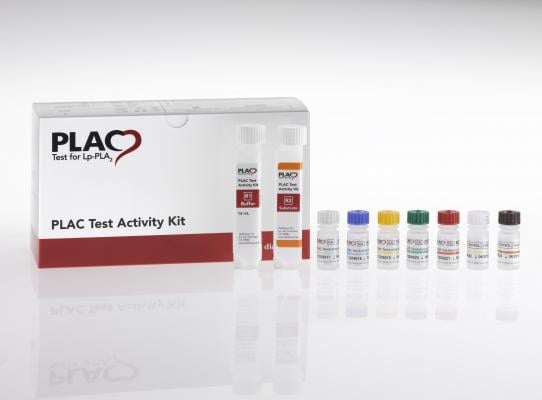

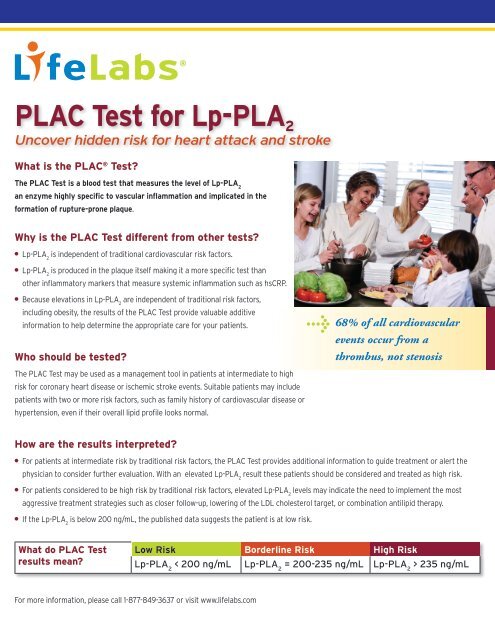

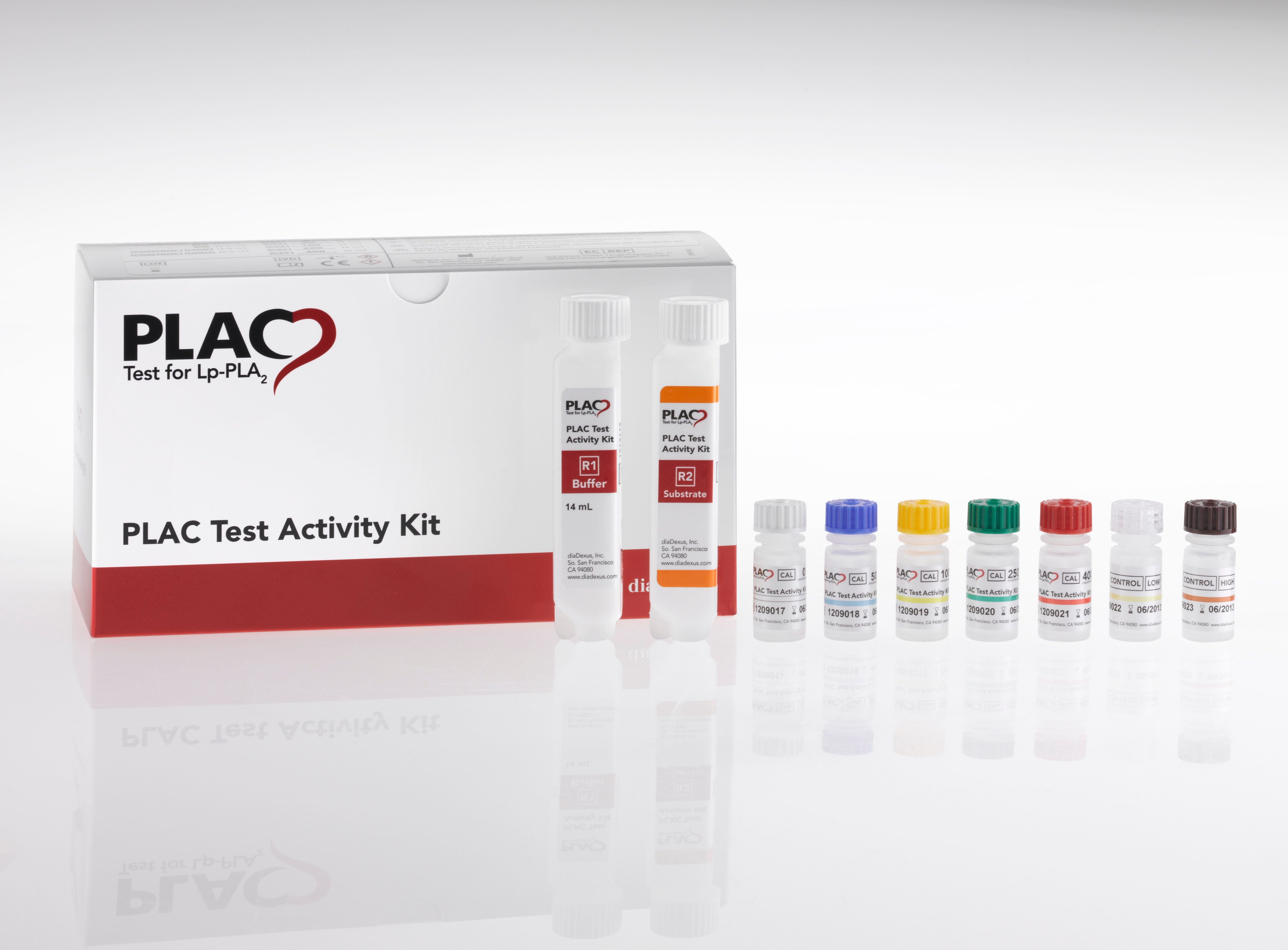



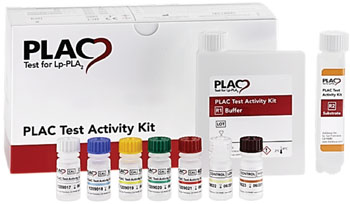




















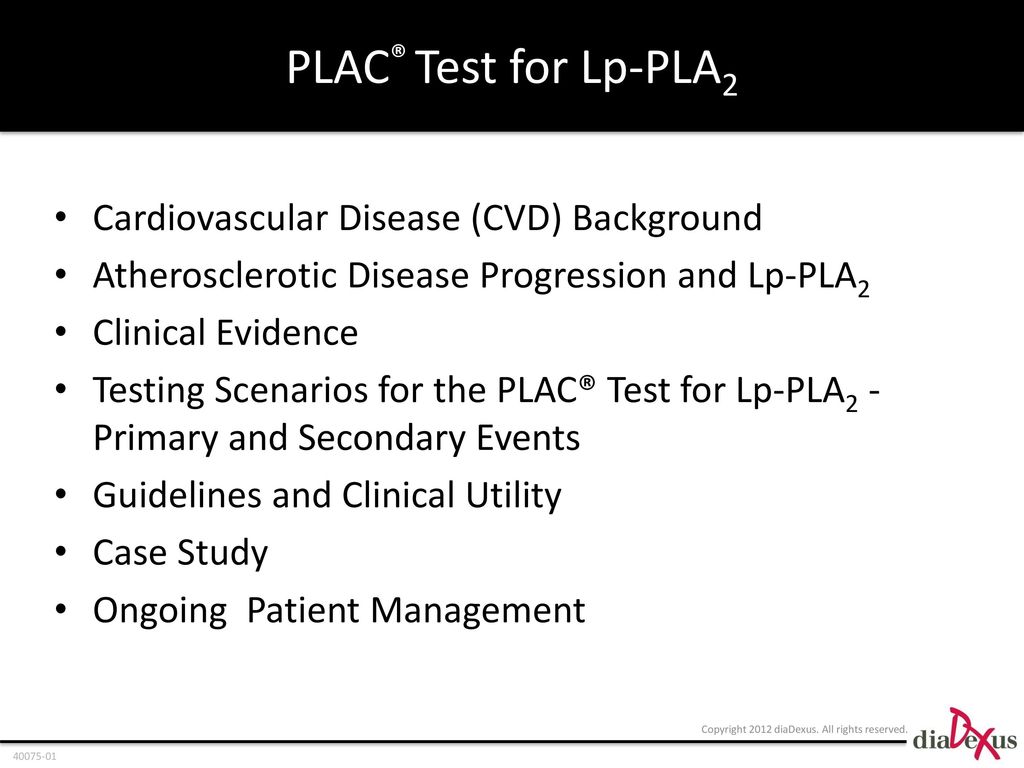




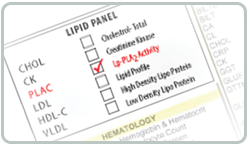



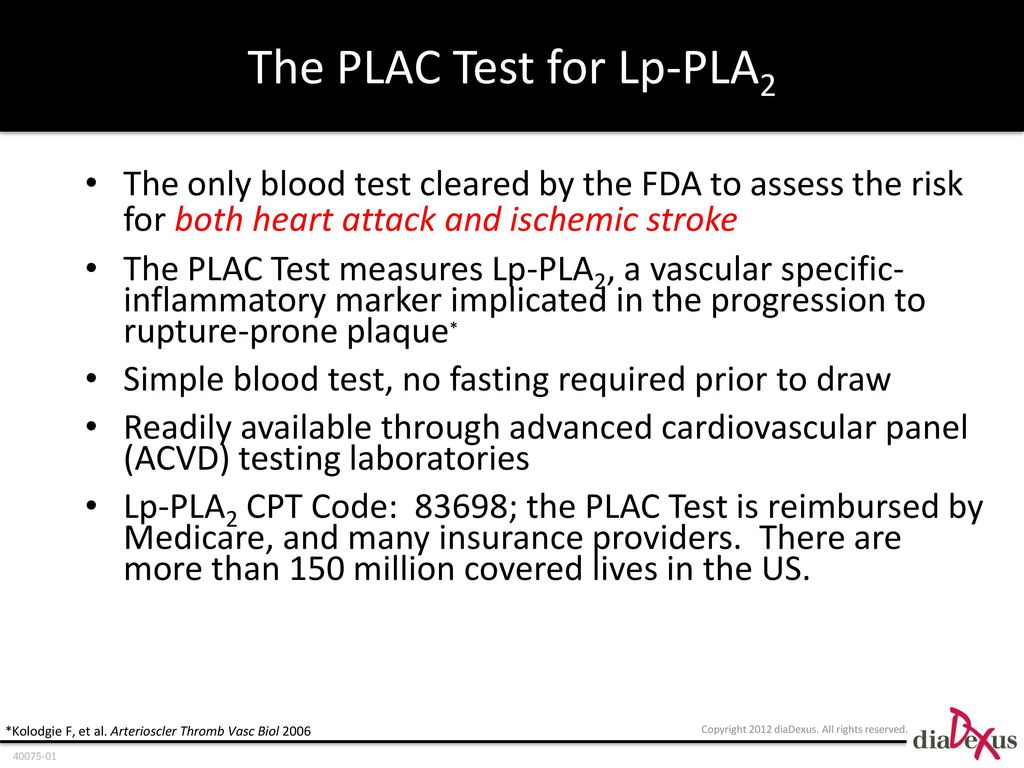



Post a Comment for "Plac Test For Heart Disease"